Results
-
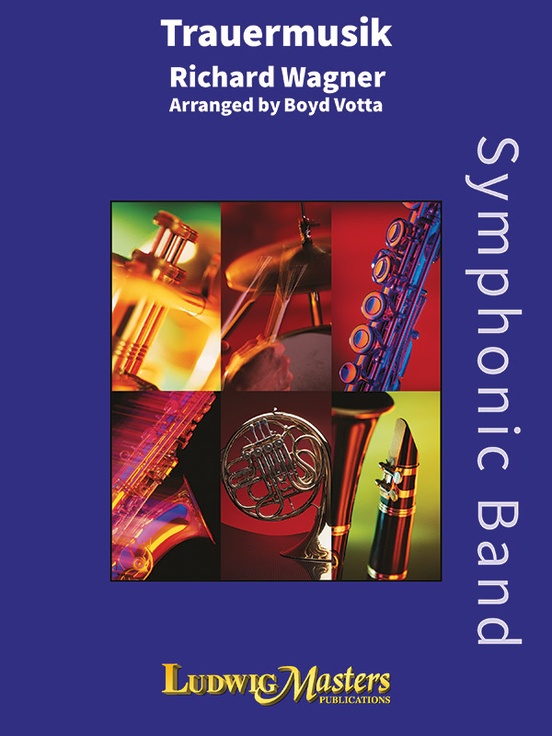 £58.50
£58.50Trauermusik - Richard Wagner / arr. John Boyd, Michael Votta
Renowned for his timeless additions to the world of opera and orchestral repertoire, Richard Wagner composed Trauermusik to accompany Carl Maria von Weber's remains to their final resting place. Using themes of Weber, it is a significant addition to the wind repertoire and Dr. Boyd's adaptation for modern ensembles makes it a true classic. A terrific recording is also available through Ludwig Music/ELF CD, Masterworks, 30991010.
Estimated dispatch 3-5 working days
-
 £64.50
£64.50To Reap the Blessings of Freedom - Douglas E. Wagner
This beautiful medley arranged by Douglas Wagner is constructed from the hymns of the United States Armed Forces. The flowing musical lines are reinforced throughout the ensemble. is a wonderful setting that will be well-received on any program to add a patriotic flavor. (4:00)
Estimated dispatch 3-5 working days
-
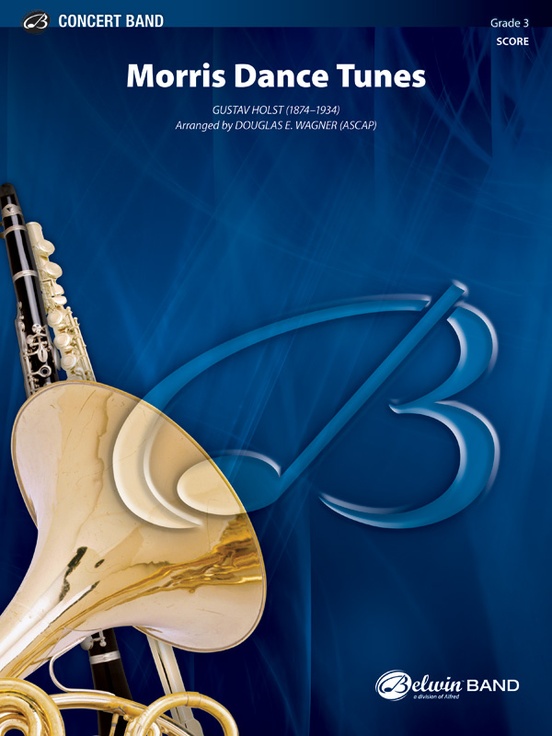 £66.95
£66.95Morris Dance Tunes - Gustav Holst / arr. Douglas E. Wagner
Morris dancing has been part of English culture and tradition for more than five centuries and still flourishes today in all parts of the UK. Douglas Wagner has made use of Holst's charismatic style in these four spirited 'dance' tunes which now each include a brief introduction that also serves as an interlude for this through-played work. A charming cross-cultural addition to the concert band repertoire! This title is available in MakeMusic Cloud. "This attractive educational material will provide many teaching opportunities."-
Estimated dispatch 3-5 working days
-
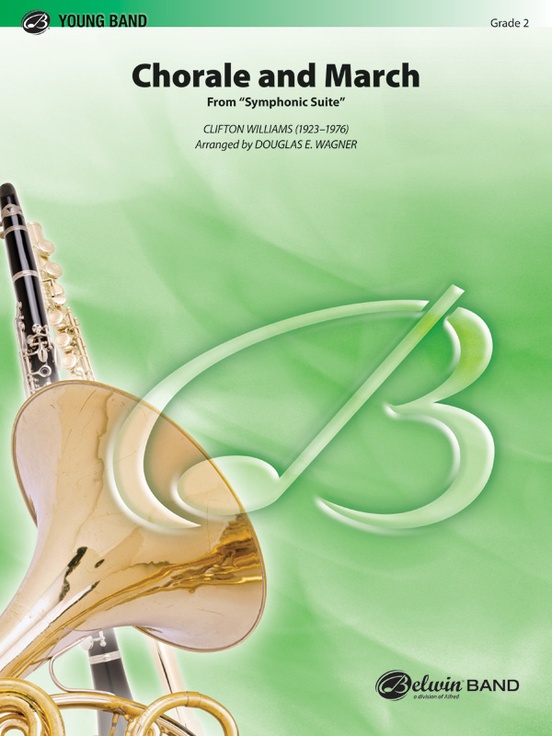 £62.95
£62.95Chorale and March - Clifton Williams / arr. Douglas E. Wagner
Originally published in 1957, with five diverse movements, American composer J. Clifton Williams' includes: "Intrada," "Chorale," "March," "Antique Dance," and "Jubilee." A brilliantly conceived study in motivic repetition, development, and permutation, Douglas Wagner has selected the contrasting "Chorale" and "March" movements in this arrangement designed for successful performance by younger players. Drawn from the original edition, the two movements are presented unabridged, with the composer's unique scoring colorations preserved whenever possible. A cherished new setting for the young band repertoire. This title is available in MakeMusic Cloud.
Estimated dispatch 3-5 working days
-
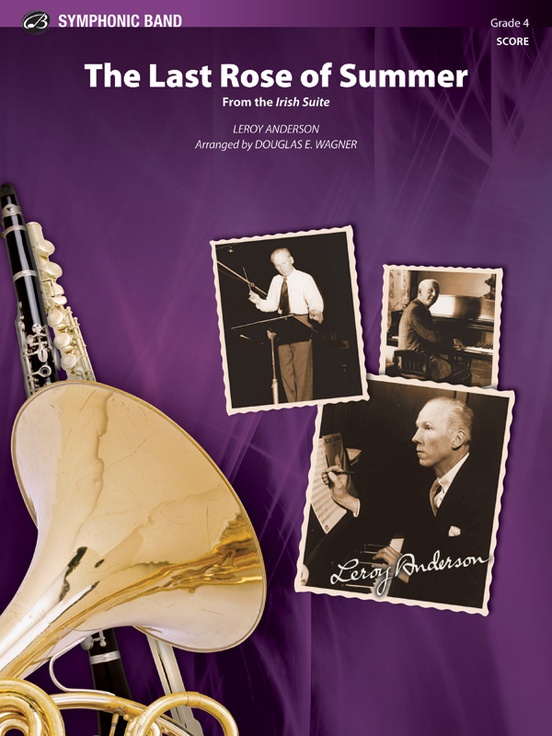 £73.50
£73.50The Last Rose of Summer (from the ) - Leroy Anderson / arr. Douglas E. Wagner
The fifth movement of Leroy Anderson's The Irish Suite, "The Last Rose of Summer," has never been transcribed for concert band. Skillfully scored by Douglas Wagner in Anderson's charismatic characteristic style, this work features an emotional alto saxophone solo in place of the orchestra version's violin solo. This dramatic work is performable as a stand-alone work or in tandem with the rest of the movements. All movements are now available: I. "The Irish Washerwoman" [00-83181], II. "The Minstrel Boy" [00-32547], III. "The Rakes of Mallow" [00-30836], IV. "The Wearing of the Green" [00-30835], V. "The Last Rose of Summer" [00-32545] and VI. "The Girl I Left Behind" [00-32546].
Estimated dispatch 3-5 working days
-
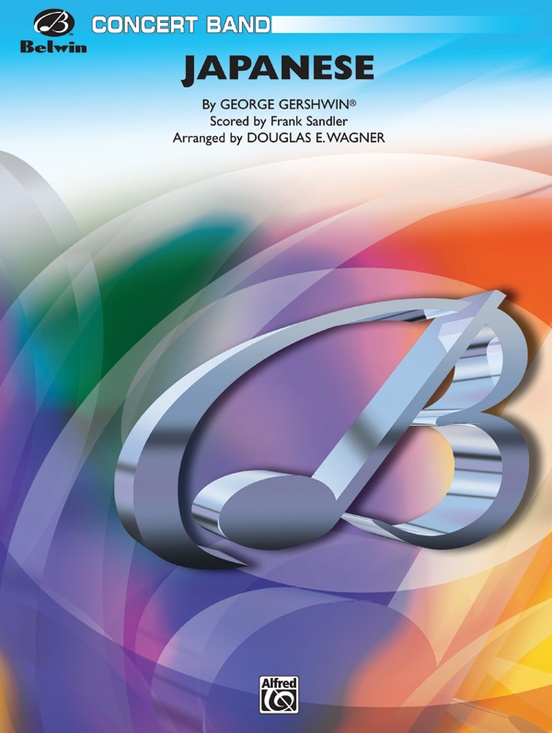 £66.95
£66.95Japanese - George Gershwin / arr. Douglas E. Wagner
This encore-like Gershwin work was just recently discovered. Originally scored for piano, this contemporary concert band transcription of "Japanese" will bring the joy of characteristic Gershwin to your concert stage. A fun filled brand new Gershwin title masterfully arranged by Douglas E. Wagner.
Estimated dispatch 3-5 working days
-
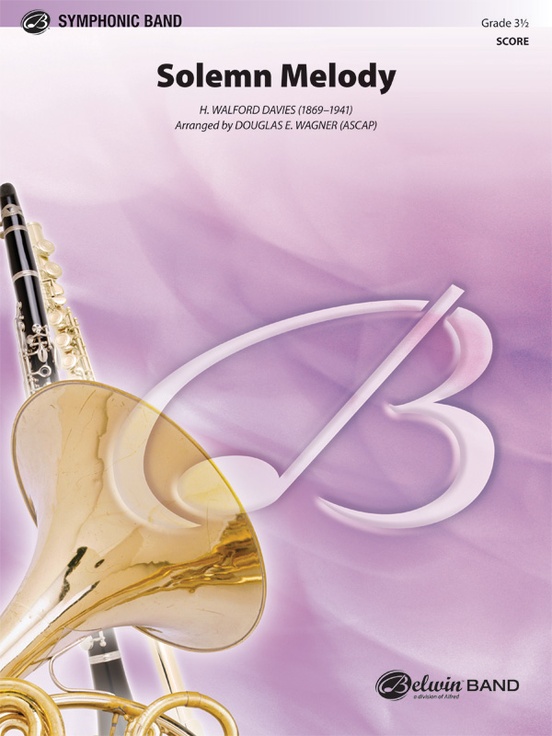 £73.50
£73.50Solemn Melody - H. Walford Davies / arr. Douglas E. Wagner
First cast in 1908 for strings and organ, Sir Henry Walford Davies has enjoyed a number of scorings and even the addition of words. This Douglas Wagner setting expands on the emotion further developing the beauty and depth of the original. A stunning work - completely awe inspiring! This title is available in MakeMusic Cloud.
Estimated dispatch 3-5 working days
-
£70.00
-
 £60.00
£60.00Magic Wagner - Jérôme Naulais
Estimated dispatch 7-14 working days
-
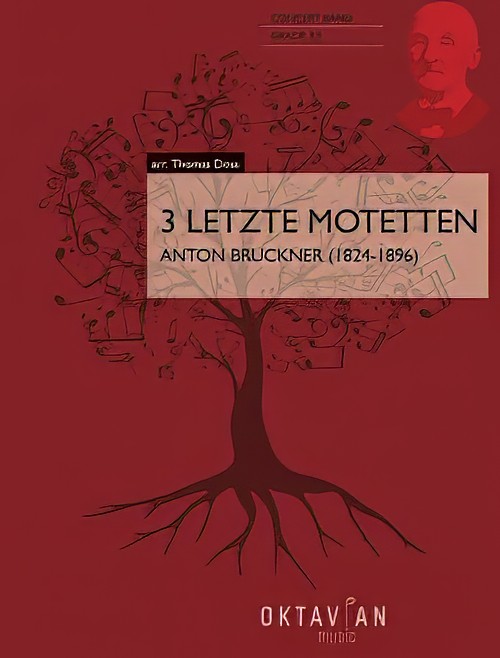 £123.20
£123.203 Letzte Motetten (Concert Band - Score and Parts) - Bruckner, Anton - Doss, Thomas
Anton Bruckner (b. 4.9.1824, Ansfelden, d. 11.10.1896, Vienna) didn't have it easy. Throughout his life, the Austrian composer was plagued by self-doubt. Anton Bruckner came from a simple, rural background. After the death of his father, he was accepted as a choirboy at the monastery of Sankt Florian in 1837. After several years as a school assistant and his own organ and piano studies, he first worked as organist in St. Florian, then from 1855 as cathedral organist in Linz. Introduced to music theory and instrumentation by Simon Sechter and Otto Kitzler, he discovered Richard Wagner as an artistic role model, whom he admired throughout his life and also visited several times in Bayreuth. In 1868 Anton Bruckner became professor of basso continuo, counterpoint and organ at the Vienna Conservatory; ten years later court organist; and in 1891 finally honorary doctor of the University of Vienna. He was considered an important organ virtuoso of his era, but had to wait a long time for recognition as a composer. It was not until Symphony No.7 in E major, composed between 1881 and 1883, with the famous Adagio written under the effects of Wagner's death, that he achieved the recognition he had hoped for, even if he was reluctant to accept it given his inclination towards scepticism and self-criticism. Anton Bruckner was a loner who did not want to follow a particular school or doctrine. He composed numerous sacred vocal works, such as his three masses, the Missa Solemnis in B flat minor (1854), the Te Deum (1881-84) and numerous motets. As a symphonic composer, he wrote a total of nine symphonies and many symphonic studies from 1863 onwards, tending to revise completed versions several times over. Bruckner's orchestral works were long considered unplayable, but in fact were merely exceptionally bold for the tonal language of their time, uniting traditions from Beethoven through Wagner to folk music, on the threshold between late Romanticism and Modernism. Anton Bruckner composed about 40 motets during his lifetime, the earliest a setting of Pange lingua around 1835, and the last, Vexilla regis, in 1892. Thomas Doss has compiled some of these motets in this volume for symphonic wind orchestra. These motets show many characteristics of personal expression, especially Bruckner's colourful harmony in the earlier works, which is in places aligned with Franz Schubert (changes between major and minor; and movements in thirds). Later works are characterised by many components which, in addition to the expanded stature of the movements, include above all a sense of the instrumentation as an outward phenomenon and the harmony as a compositional feature that works more internally. Some aspects of Bruckner's work are the result of his long period of study, which familiarised him not only with the tradition of his craft, but also gave him insights into the "modernity" of his time in such composers as Wagner, Liszt and Berlioz. From this developed his personal standpoint, which always pursues the connection between the old and the new.Duration: 14.00
Estimated dispatch 7-14 working days
